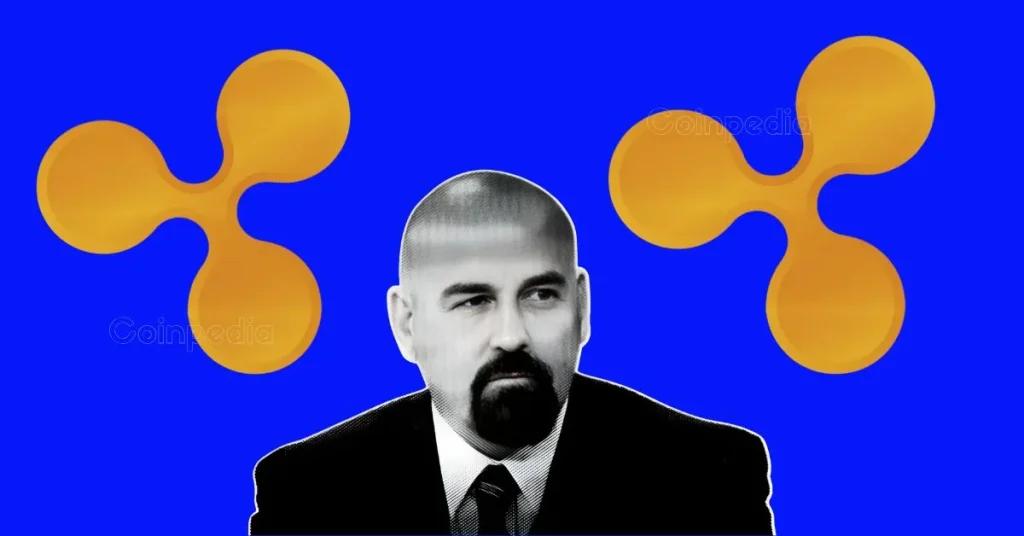John Deaton Predicts Ripple and Coinbase Will Disrupt Traditional Banking
Recent trends show a surge in young people moving away from traditional banking systems towards crypto platforms in search of better financial opportunities. This shift is fueled by the promise of higher returns, tokenized stocks, and access to Web3 tools that offer increased control and versatility in financial transactions. Notably, industry experts like Paul Barron highlight the mounting pressure on major banks such as Wells Fargo and Bank of America as the younger demographic increasingly expresses a willingness to transition to crypto and DeFi platforms.
John E Deaton, a prominent figure in the crypto space, envisions a future where companies like Coinbase, Kraken, Ripple, and Robinhood will play a pivotal role in reshaping the financial landscape, potentially replacing traditional banks. Deaton foresees a scenario where these platforms become comprehensive financial hubs, providing services ranging from vehicle loans to mortgages, and enabling peer-to-peer lending among users.
The Potential Ripple-Uphold Merger
Deaton also speculates on a possible acquisition of Uphold by Ripple, suggesting that such a move could further solidify Ripple’s position in the digital payments sector and expand its user base, offering a broader array of financial tools within its ecosystem.
The Evolution of Financial Services
According to Deaton, financial institutions that fail to innovate and embrace modern technologies risk becoming obsolete. The rise of DeFi has set a new standard in the industry, with users increasingly demanding faster services, higher returns, and greater financial autonomy. This paradigm shift explains why a growing number of young individuals are favoring crypto platforms over traditional banks.
Coinbase and Robinhood Leading the Charge
Deaton asserts that platforms like Coinbase and Robinhood are no longer just trading apps but are evolving into robust financial entities. As the adoption of cryptocurrencies continues to grow, these platforms are attracting a broader user base. Recent statements by industry experts, including Cathie Wood, hint at a future where individuals could use platforms like Coinbase to secure loans, leveraging their crypto holdings as collateral.
Deaton aligns with this view, endorsing Coinbase as a top stock to watch, alongside established financial giants like Goldman Sachs and JPMorgan. He emphasizes that Coinbase’s recent stock performance underscores its growing influence in traditional finance, signaling a broader shift in the financial landscape.
Seizing the Opportunity
Deaton emphasizes that the transformation is already underway, with the financial sector rapidly evolving. Early adopters of these emerging trends stand to gain the most from this changing financial landscape, as the industry moves towards greater decentralization and technological integration.
Why the Shift Away from Traditional Banks?
Younger generations, particularly Gen Z and Millennials, are attracted to crypto platforms due to the potential for higher returns, access to tokenized assets, and the flexibility offered by Web3 tools. These demographics seek faster services, enhanced financial accessibility, and a more transparent and technologically advanced monetary ecosystem, elements often lacking in traditional banking institutions.
Future Financial Services Landscape
While platforms like Coinbase currently offer crypto-backed loans, enabling users to borrow against their digital assets, the potential for expanding these services to encompass auto loans and mortgages using crypto as collateral is on the horizon. This shift towards tokenization and leveraging crypto assets for traditional financial services signals a broader transformation in how financial transactions are conducted.
Challenges Faced by Traditional Banks
Conventional banks like Wells Fargo and Bank of America are struggling to attract younger demographics due to their outdated systems and slower adoption of new technologies. The lack of innovation and the inability to meet the evolving demands of digitally native users place these institutions at a disadvantage in the rapidly changing financial landscape.


